Explainer: Who was Nahel M. and why was he shot dead by French police?
By Gabriel Rogers
Mass protests across France over a teenager’s killing by police entered their fifth day on Saturday, leading to arrests of about 1,300 protesters, and injuries to thousands of others.
The protests against rampant racism and police brutality in France are reportedly led by youth with the French government deploying 45,000 troops and armored vehicles on city streets to suppress them.
French President Emmanuel Macron, who was expected to arrive in Germany on Sunday for talks with German Chancellor Olaf Scholz, had to postpone the state visit as protests rage on in Paris.
Reports on Saturday said many poorer French neighborhoods have been in a state of open revolt against the ruling establishment since the teenager’s ghastly murder by French police on Tuesday.
The slain teenager was laid to rest on Saturday following a funeral ceremony held at Nanterre’s grand mosque that was attended by thousands of people amid tight security arrangements.
“If you have the wrong skin color, the police are much more dangerous to you,” a young man at his funeral was quoted as saying, pleading anonymity for fear of reprisal.
Who was Nahel M?
The only child brought up by his mother, Nahel M was of Algerian origin and had been working as a takeaway delivery driver and also was a rugby enthusiast, according to reports.
He studied at a college in Suresnes in the western suburbs of Paris and trained to be an electrical engineer, his family and friends were cited as saying.
He was said to be popular in his neighborhood in Nanterre where he lived with his mother Mounia.
"What am I going to do now?" his mother wailed after getting the news. "I devoted everything to him, I've only got one, I haven't got 10 [children]. He was my life, my best friend."
His grandmother spoke of him as a "kind, good boy", according to reports.
For the past three years, he had been playing for the Pirates of Nanterre rugby club and was part of an integration program organized by Ovale Citoyen, an organization that helps struggling teenagers find apprenticeships.
"He was someone who had the will to fit in socially and professionally, not some kid who dealt in drugs or got fun out of juvenile crime," Ovale Citoyen president Jeff Puech told Le Parisien.
Nahel had a clean background and was never charged of any criminal conduct, his family confirmed.
Murder most foul
The protests were sparked by the killing of Nahel M, a young Frenchman of Algerian origin, in the Paris suburb of Nanterre on Tuesday, which was recorded on video by passers-by and shared online.
French police offered a twisted explanation of the incident, claiming that the slain boy was committing traffic violations, endangering pedestrians, driving without a license, disobeying police orders and that two officers were trying to defuse the situation.
They also claimed that officers shot the teenager because their lives were in danger as he tried to run them over. They even claimed that he was "known to the police" due to the alleged 15 violations.
The evidence, however, suggests Nahel was an innocent young man without any criminal record, and the video recorded by a casual eyewitness also proves that claims made by police are untrue.
The 17-year-old did not have a full driver's license and was driving a rented car that he took completely legally through the application and was in the company of two friends, which can imply driving under supervision by French law.
According to reports, he was practicing driving with the goal of obtaining a driver's license, which was necessary to continue working in the delivery business he and his mother financially depended on.
No evidence of violations
Although French police use in-car and body cameras, they offered no evidence of the teenager breaking traffic rules and endangering pedestrians before the stop.
The video clearly shows that he voluntarily stopped the vehicle and had no intention of running away, but problems arose after two policemen pointed a gun at his head from close range, with recorded shouts "You're going to get shot!"
This situation reportedly put him under enormous psychological pressure, because in order to get out of the vehicle he necessarily had to perform manual actions on the gearbox and handbrake, which in given circumstances could easily be interpreted as reaching for a weapon.
The teenager instinctively hit the gas in a panic, and immediately a police officer opened fire at him. Not into the tires of the car with the aim of stopping the vehicle, but directly at him with the aim of killing him.
The vehicle continued to move for several more meters and collided with a post, with a honking sound caused by his head hitting the horn. He was given emergency medical assistance but died minutes later.
Deep-rooted police racism
The slain boy’s mother Mounia called for protests against his ghastly murder, saying that "a police officer saw an Arab face, a little kid, and wanted to take his life."
The broad daylight murder, together with the distorted police version of the event, triggered massive and spontaneous protests from young people throughout France and beyond.
Protests over the young boy’s killing have also been held in neighboring Belgium, as well as in distant French Guiana in South America and Reunion in the Indian Ocean.
According to experts, the current protests are a response to long-term and deeply rooted racism in French society, but also the result of widespread social discontent that already resulted in multimillion-strong protests earlier this year.
However, the French authorities do not agree with this version. President Emmanuel Macron attributed it to video games. Even French celebrities are not too vocal in expressing their support for the rights of young French people, with most of them choosing silence.
France’s Greens party leader Marine Tondelier, however, termed Nahel’s killing an “execution.”
"What I see on this video is the execution by police of a 17-year-old kid, in France, in 2023, in broad daylight," she was quoted as saying.
Reactions to teenager's murder
Nahel’s neighbors paid rich tributes to him while denouncing the inhumane treatment meted out to racial minorities in France.
"Nahel was a quiet boy," 65-year-old Saliha, a resident in his neighborhood, told the AFP on Saturday.
Algeria's foreign ministry also expressed its "consternation" over the teenage boy’s police murder and called Nahel an Algerian "national" to whom France owed protection.
United Nations in a statement on Saturday said France must address deep issues of racial discrimination in its police force.
"We are concerned by the killing of a 17-year-old of North African descent by police in France on Tuesday," UN human rights office spokeswoman Ravina Shamdasani told a media briefing in Geneva.
"This is a moment for the country to seriously address the deep issues of racism and discrimination in law enforcement."
“What we’ve seen over the past few days is a lot of discourse about law and order, about restoring order, about how awful this violence is," says French politics professor
Ariane Bogain, a senior lecturer of French politics at Northumbria University, urged the French authorities to address the root cause of Nahel's murder - structural racism in the country.
What we’ve seen over the past few days is a lot of discourse about law and order, about restoring order, about how awful this violence is," says French politics professor
"What we’ve seen over the past few days is a lot of discourse about law and order, about restoring order, about how awful this violence is," he told France 24.
“What we haven’t heard is a discussion of the structural causes of all of this".
VIDEO | An unchecked presidency
VIDEO | Deportations strain Afghanistan’s fragile economy
‘Full-scale atrocity’: Iran security body reports 2,427 martyrs in US-Israeli-led riots
Smallest coffins are the heaviest: The three youngest victims of foreign-backed riots in Iran
Hamas warns of ‘systematic Israeli violations’ as Gaza ceasefire teeters
Israeli strikes kill 11 across Gaza, including children and journalists: Palestinian medics
US forces transferring Daesh prisoners from Syria to Iraq: CENTCOM
Press TV's news headlines


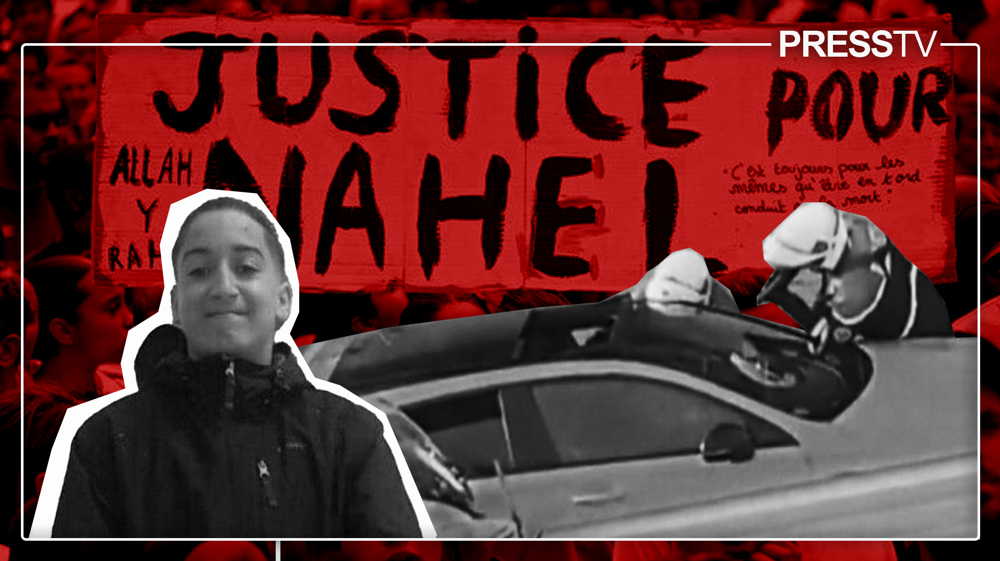

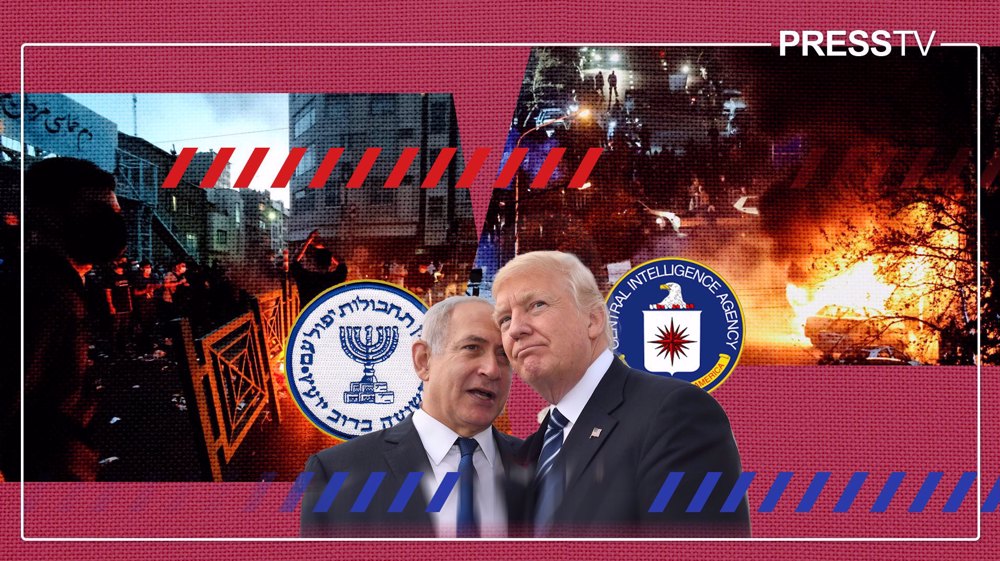
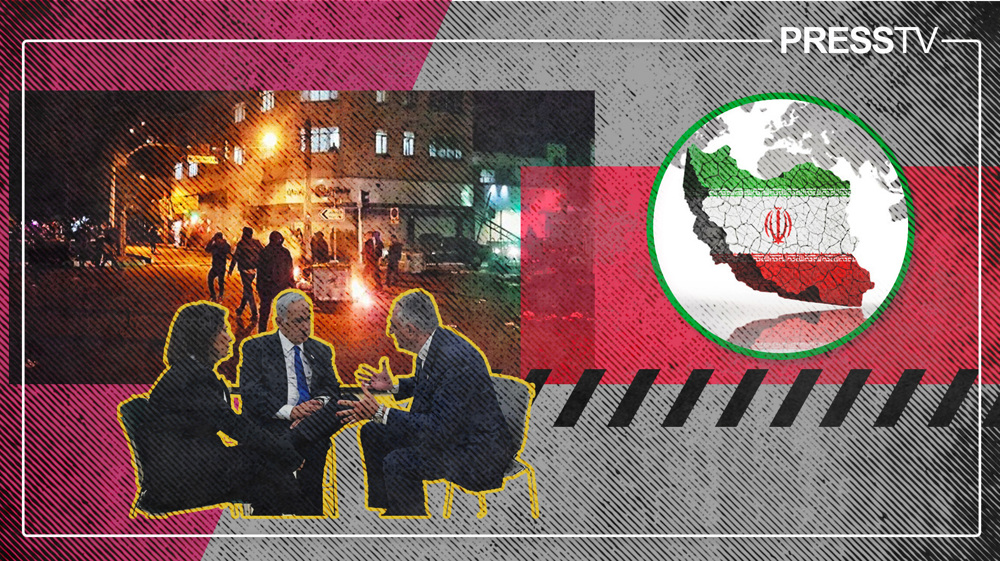



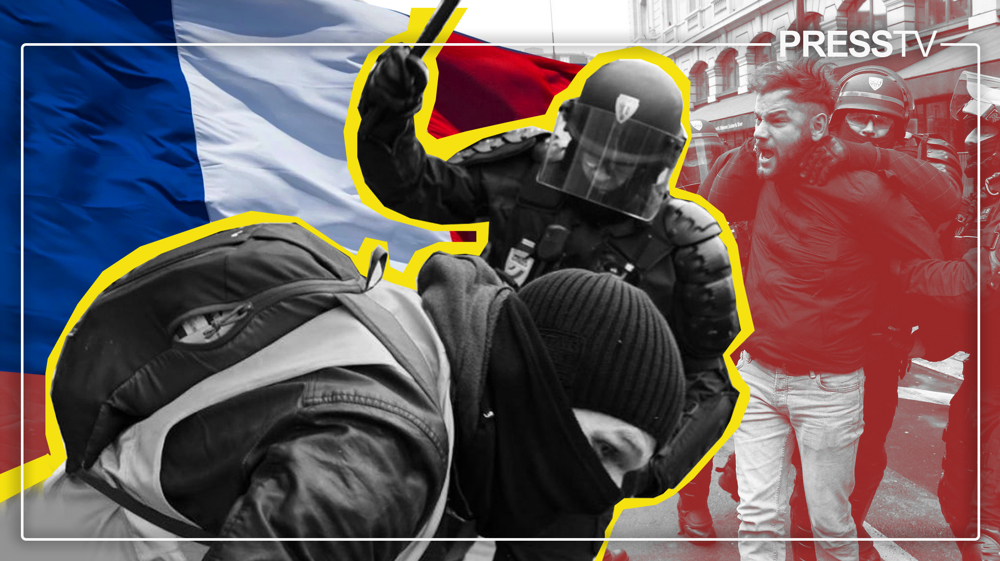
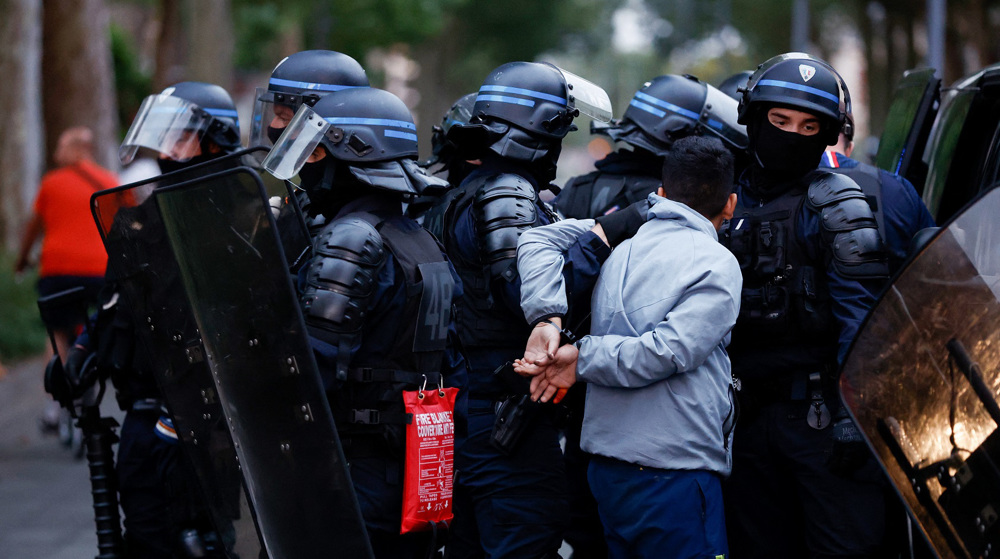
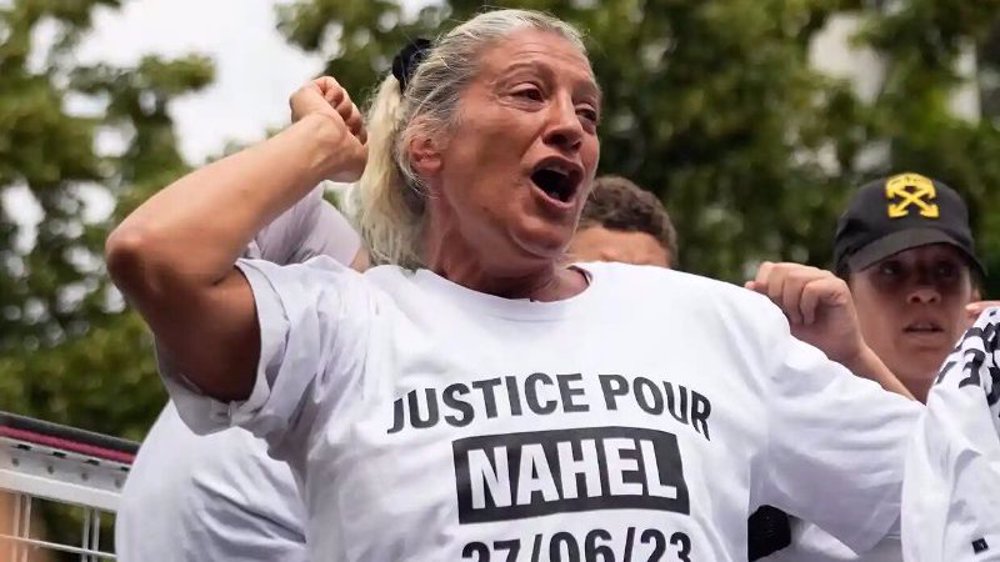
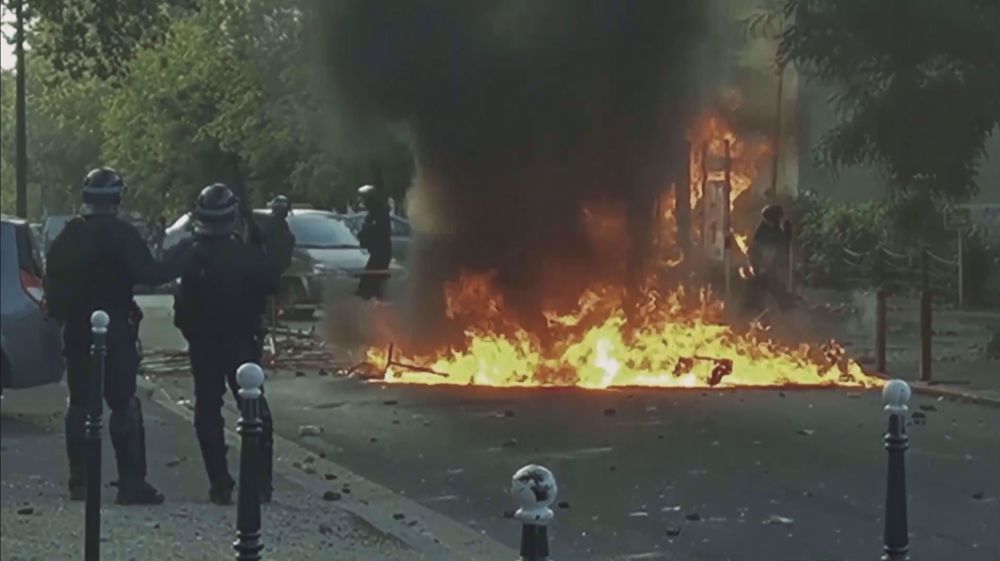
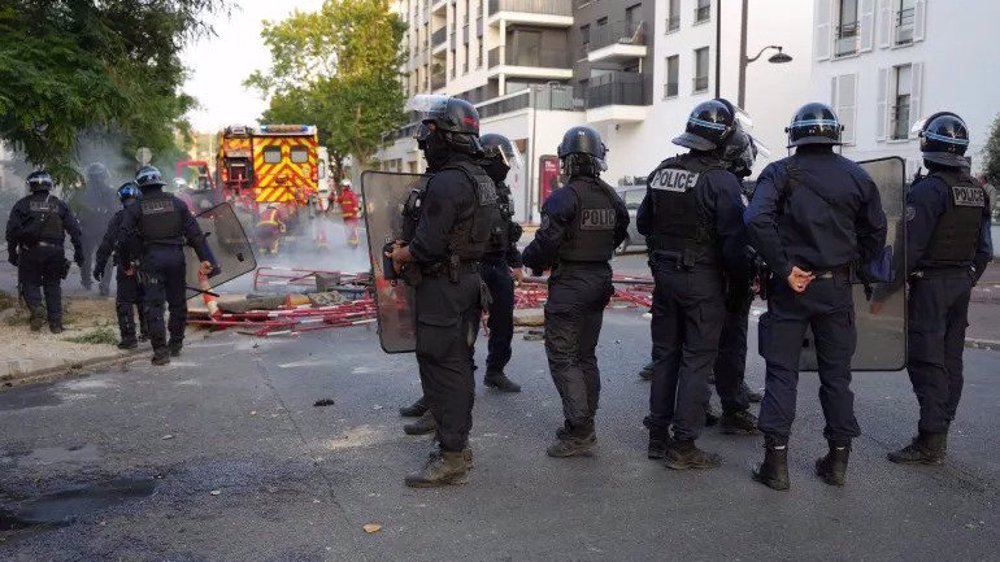

 This makes it easy to access the Press TV website
This makes it easy to access the Press TV website